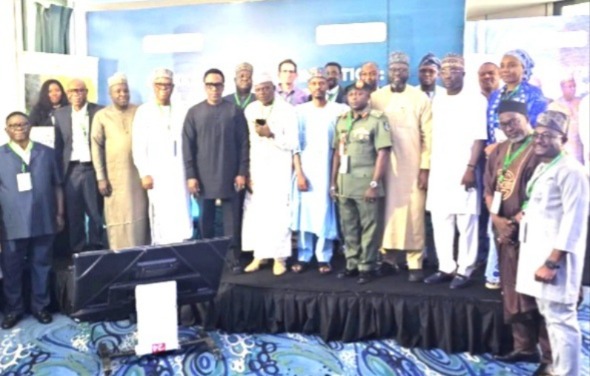The African Agricultural Technology Foundation (AATF), the Nigerian Meteorological Agency (NiMet) and a coalition of national and international partners have launched a collaborative initiative aimed at building climate resilience among farmers.
The initiative focused on integrating climate-smart technologies into local agricultural systems by empowering women and youth-led micro, small, and medium enterprises (MSMEs) across value chains.
Speaking on Tuesday at the conference titled: “Climate Resilience in Action: Collaborative Approaches to Adaptation”, co-hosted in Abuja by AATF, Michigan State University and Sahel Consulting, AATF’s Executive Director, Dr Canisius Kanangire emphasised the foundation’s commitment to inclusive, scalable and partnership-driven innovation in agriculture.
“Climate disruption is already impacting Africa’s farmers, particularly smallholder women and youth, our collaborative project addresses this through support for MSMEs in the rice, maize and cowpea value chains using climate-smart decision support systems,” he said.
Highlighting the project’s unique approach, AATF’s lead for the rice project and digital agriculture, Dr Kayode Sanni, explained, “We’re not only providing weather data, we’re combining it with agronomic practices and soil health indicators.
“Climate change has come to stay, we can mitigate some of its impacts, but adaptation is where we can make the most immediate difference for our farmers.”
He added that the initiative was to deliver tailored advice on irrigation, planting depth, and soil moisture to help farmers increase yields and survive dry spells.
NiMet’s Director-General, Professor Charles Anosike, who called for collaboration across sectors, highlighted the agency’s efforts to upgrade Nigeria’s observational infrastructure, calling for increased deployment of automatic weather stations and AI-enhanced forecasting tools to close data gaps.
Anosike also stressed the importance of integrating meteorological services into national development planning.
“No single institution can meet this need alone, Nigeria’s climate resilience depends on accurate, timely and locally relevant weather information,” he said.
Representing Inuwa Yahaya, the governor of Gombe State, his Principal Private Secretary, Professor Muazu Shehu reaffirmed the state’s commitment to climate resilience.
“Our flagship ‘Gombe Goes Green’ initiative has planted over five million trees since 2019 to combat desertification and raise public awareness on climate change,” Prof. Shehu said.
Speaking on behalf of the Minister of Livestock Development, Idi Mukhtar Maiha, his special adviser, Professor Eustace Iyayi, acknowledged the pressing threats climate change poses to food systems.
“Erratic weather and rising temperatures threaten livestock and crop production. Our Nigeria Livestock Growth Acceleration Strategy (NL-GAS) is designed to transform the sector into a $90 billion industry by 2035 through climate-smart practices,” Iyayi said.
He advocated for a three-pronged strategy including adaptation, mitigation, and resilience with a focus on inclusivity and innovation.
From a technical perspective, Dr. Daniel Uyeh of Michigan State University, who leads the development of an open-source weather station system, stressed the importance of real-time, localised weather data.
“Our modular, locally sourced weather stations are already in use across Nigeria and Kenya. They empower farmers, extension workers, and even schools. But we must now scale to create a continent-wide network of climate intelligence,” he said.











